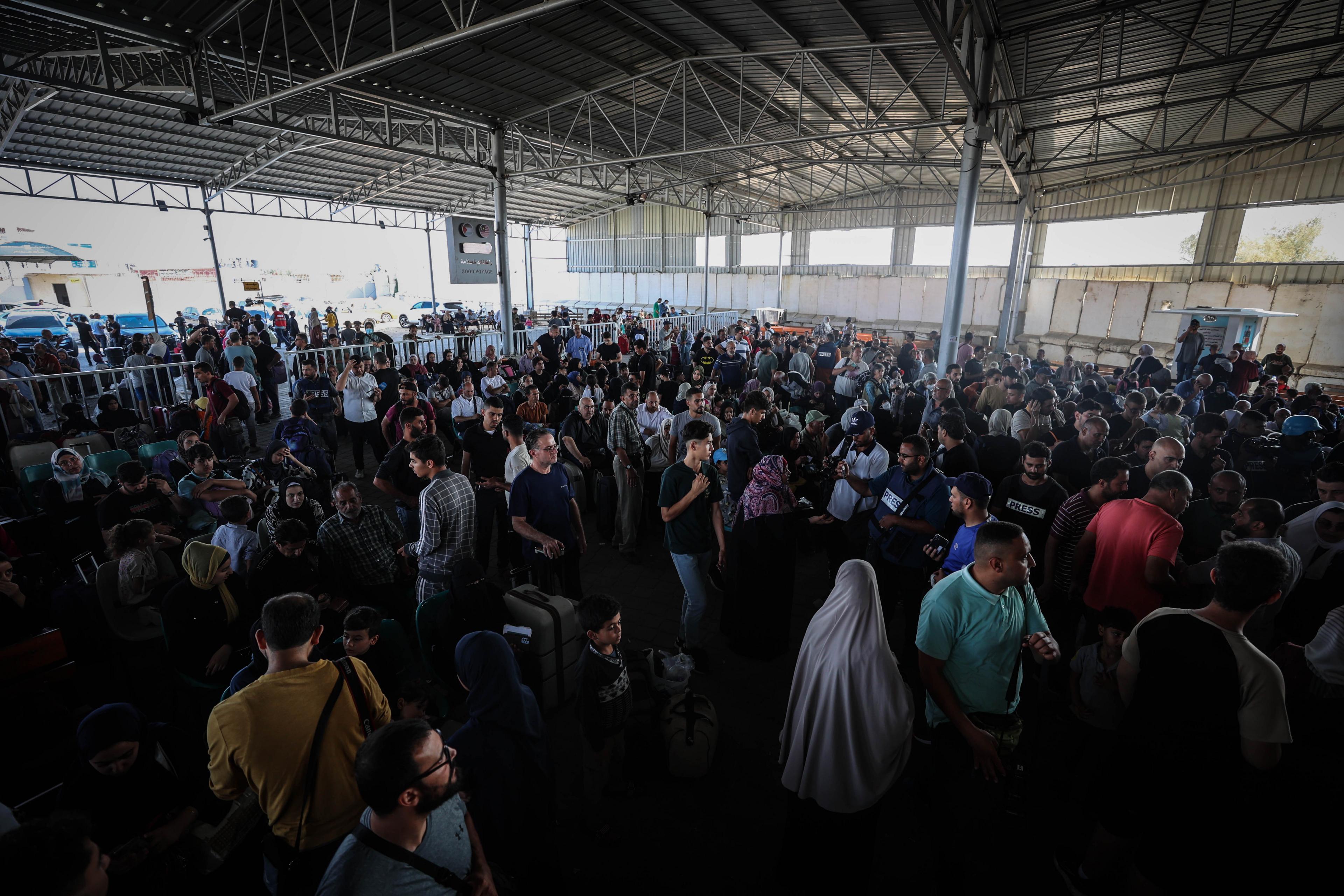Newspaper headlines: 'Escape from hell' and 'Musk's chilling alert'
- Published


Palestinians with foreign passports wait to cross into Egypt at the Rafah Border Gate in Rafah
Most of the papers this Thursday focus on the re-opening of the Rafah border crossing which allowed civilians, including some British nationals, to cross from Gaza to Egypt.
"Escape from hell" is the Daily Mirror's headline, under the picture of a tearful Palestinian boy being taken to Egypt for medical treatment.
The Times says the Foreign Office refused to confirm , externalhow many Britons were allowed to leave. But it says diplomats expect around 7,500 foreign passport holders to cross into Egypt in the next two weeks.
The Daily Telegraph says many British citizens were turned away from the crossing , externalbecause their names were not on a list of those approved to leave. The paper attributes delays and confusion to the fact that Israeli intelligence is vetting all foreign nationals for links with terrorism, before allowing their names to be included on the release list.
According to the i, people learned that there was a list of those allowed to leave only after arriving at the crossing. The paper says it has seen a list with only two British citizens on it, external. One of them was a 67-year-old transplant surgeon from Liverpool, Abdel Hammad, who was still turned away because by the time he arrived at the gate the crossing was closed again.
"Bring them home" is the Sun's front page headline, external, surrounded by pictures of 32 children taken hostage by Hamas on 7 October. The paper says the youngsters are being held underground in Hamas's network of tunnels in Gaza.
A warning from the billionaire tech entrepreneur, Elon Musk - that artificial intelligence poses one of the biggest threats to humanity - is highlighted by the Daily Mail. The paper says this contrasts with a comment , externalby a senior executive at Meta, Sir Nick Clegg, who argues that the risks of AI are overstated.
An editorial in the Telegraph , externalsays Sir Nick's comments are not surprising given his post-politics career, and there has been a lot of special pleading by technology companies at the conference on safety of AI. But the paper also asks whether there is an over-reaction to the rapid evolution of AI, and questions if there is a risk that it will be regulated to the point of ineffectiveness.
In one of its editorials, the Times says the Covid inquiry has shown that Britain is badly served , externalby a system which it says "promotes slippery amateurs into positions demanding integrity, professionalism and expertise". The paper says that when the pandemic struck, the closest advisers to the prime minister were people whose "claim to power was based purely on their success in managing campaigns", while the civil service was "distracted by Brexit and a radical shake-up promised by the then Downing Street chief of staff Dominic Cummings".

Sign up for our morning newsletter and get BBC News in your inbox.
